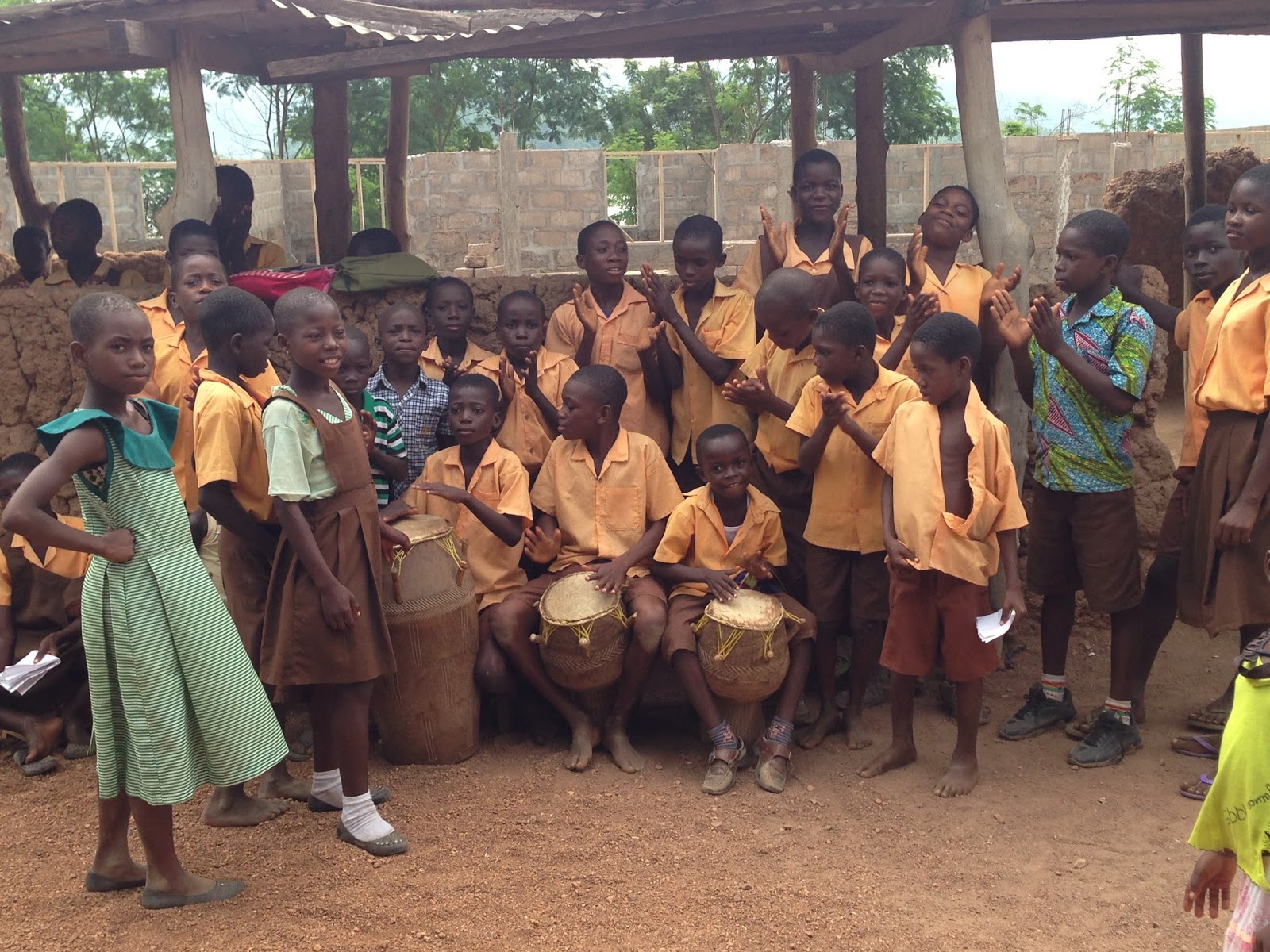Guilt is a unique emotion in that it is both selfless and
selfish at the same time. It is simultaneously enlightening and debilitating,
clarifying and obscuring. Visiting a developing country like Ghana while
calling an immensely wealthy nation like the United States home is the perfect
breeding ground for guilt to take root, multiply, and, if we’re not careful,
spread like a cancer to the degree that accomplishing anything other than
wallowing in it seems like an insurmountable task. We teach children about food
and nutrition when they do
 |
| Students in Adigbo Kofe as classes ended for the day and we prepared to board the bus. |
It has never been clearer to me that we have it easy- we
live the good life, and most of us have never truly wanted for anything that
could be considered a necessity of life. This is something I have taken for
granted my entire life, and I probably will continue to expect it even after I
return from Ghana. There are days when the guilt is somewhat assuaged, but
still it lingers; its presence is a constant, dull reminder of privilege and of
circumstance. Yesterday Katie, Kristina and I tried to help a young girl with a
high fever, dizziness, and a throat and stomach ache. She hadn’t eaten in two
days, and she hadn’t taken any medicine for her fever. In less than five
minutes, she was eating a plate of rice and drinking water taken from the
team’s lunch, and we gave her half an Aleve taken from my personal medication
store. For a brief moment, there was a sense of accomplishment and hope that
the little girl would get better, and that, in part, it would be because of our
efforts. But those emotions were quickly replaced with yet another wave of
guilt- why were the rice and water so readily available to me and not her? Why
do I have seemingly endless access to medications when people in this girl’s
village die because of a deceptively
innocuous-seeming fever? At the end of the day, it just doesn’t seem fair- so
the guilt lingers.
Last night at dinner, I asked the team to share their most
challenging moment or aspect of the trip thus far. Guilt was an oft-repeated
motif that wove its way through each of my teammates brief speeches in a way
that nearly broke my heart. I sat at a table with 16 brilliant, motivated,
passionate people who truly want to effect change, but they couldn’t see past
the guilt to their own accomplishments and overwhelming successes with the
students who welcomed us into their schools with open arms and beaming faces
over the past week. So I decided not to let the guilt overtake us- how could I
let the dark side of guilt overshadow the brightness and light of the pure love
for humanity that exists in each member of my team? Yes, we are privileged.
Yes, it is unjust and almost cruelly unfair at times. Yes, a certain degree of
guilt offers perspective and maintains balance. But (and this is a big,
important but) we are making the deliberate choice to use that cruelly unfair
privilege to equalize the global playing field to the best of our abilities.
Slowly but surely, as more of our peers, mentors, and successors in our
respective fields recognize the need for this equalization, the guilt will
begin to dissipate. For now, I’ll settle for the ever-present guilt taking a
backseat to the other emotions I think my team deserves to feel as our week of public health education draws to a close- jubilation,
empathy, sadness, a sense of purpose and, above all, hopefulness for the future.
 |
| The future. |
~ Shikha








